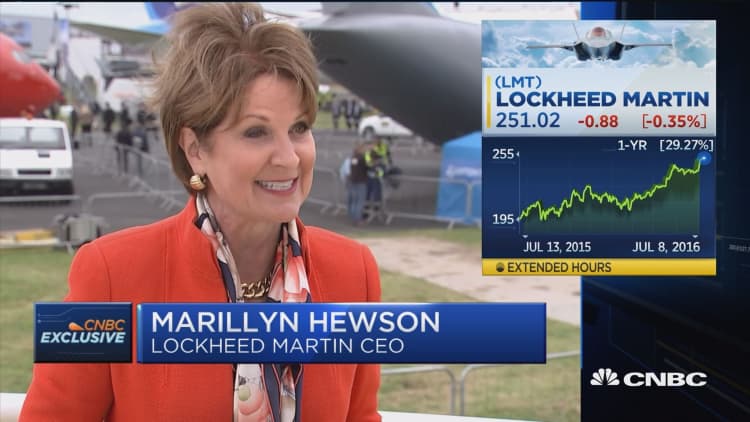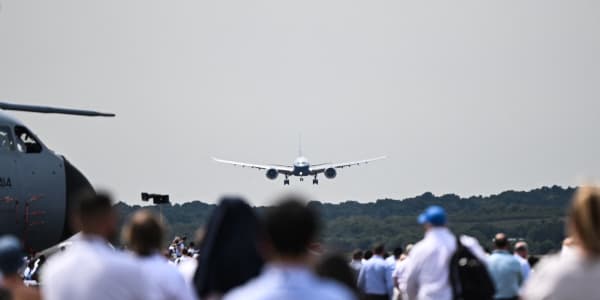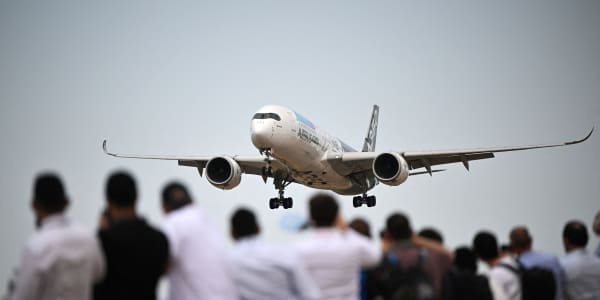
The price of Lockheed Martin's F-35 fighter jet is coming down as commercial sales of the pricey aircraft ramp up, CEO Marillyn Hewson said Monday.
The F-35 made its first appearance at the world's largest military air show on Friday. The $379 billion warplane project is the largest arms program in the world.
Six F-35 jets, including one owned by Britain, were on display at the Royal International Air Tattoo, drawing cheers from huge crowds two years after engine trouble and a fleetwide grounding prevented their international debut at the show.
Launched 15 years ago, the world's largest weapons program was plagued for years by cost overruns and technical challenges, but with more than 180 F-35 jets now flying it is finally hitting its stride.
"Now with that many aircraft delivered, we are down 57 percent from the first aircraft that was delivered, and we're on a path to be down to a price of an $85 million jet by 2019, which is comparable to a fourth generation aircraft," Hewson told CNBC's "Worldwide Exchange" on the sidelines of the Farnborough International Airshow in England.
Lockheed is building three versions of the plane for the U.S. military, Britain, Turkey, Australia, Italy, Denmark, Norway, the Netherlands, Israel, Japan and South Korea. It said it expects to sell 3,000 jets in coming decades, with production expected to peak at around 170-180 planes a year around 2023.
Denmark recently decided to buy 27 jets, Hewson noted. She said countries around the world do not see global security challenges diminishing.
"They continue to focus on defense. And so you'll see a lot of countries that are actually increasing their defense spending because they need to address the threats that are out there," she said.
The U.S. Department of Defense and Lockheed Martin are in the final stages of negotiations about two contracts for 160 fighter jets, tandem deals valued at more than $14 billion, the Pentagon's F-35 program manager said Saturday.
Buying larger numbers of jets at a time — starting with the 12th production batch of planes — could generate savings of $2 billion to $2.8 billion, even if the U.S. military were not able to join in until it receiving congressional approval, Air Force Lt. Gen. Chris Bogdan told Reuters.
Sources familiar with the two contracts said they would likely be valued $14 billion to $15 billion.
— Reuters contributed to this report.





